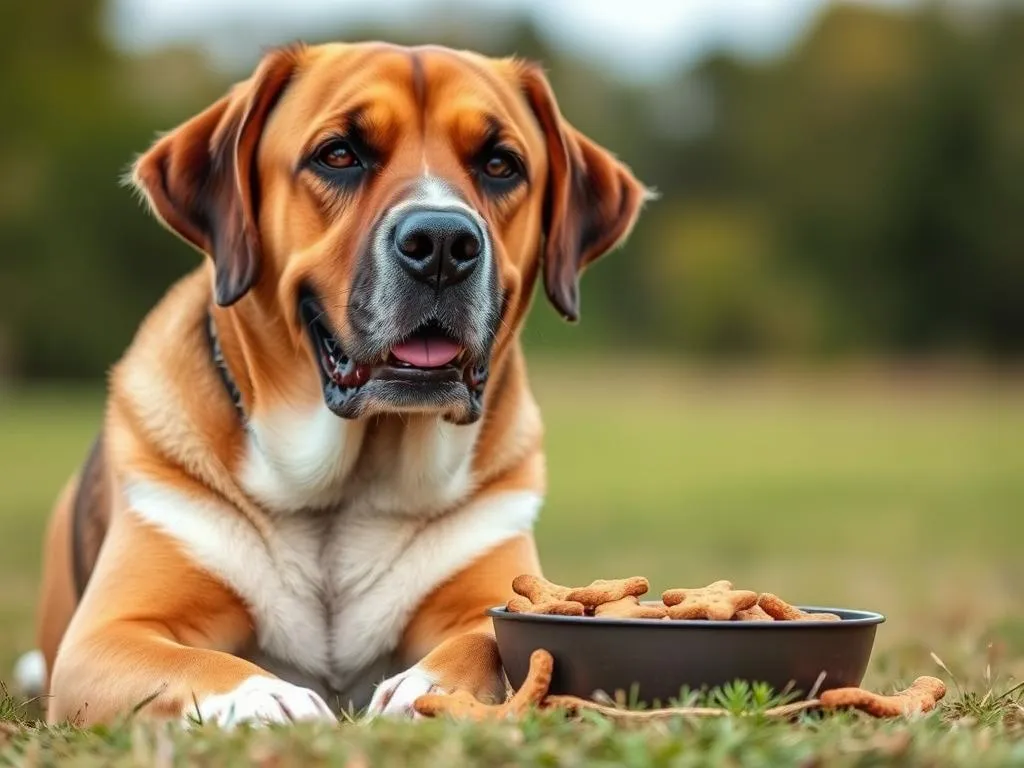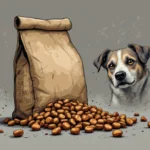
Dog nutrition plays a pivotal role in maintaining the overall health and well-being of our furry companions. For large dogs, who often have different dietary needs compared to smaller breeds, understanding these requirements is essential. Treats can be a delightful part of a dog’s diet, providing not just enjoyment but also opportunities for training and bonding. Choosing the best dog treats for large dogs can enhance their diet and contribute to their health, making it crucial to select high-quality options.
Understanding Dog Nutrition
Nutritional Needs for Large Dogs
Large dogs require specific nutrients to support their growth, energy levels, and overall health. These can be categorized into:
- Protein: Essential for muscle development and overall body function. Large breeds benefit from a diet rich in high-quality protein sources such as chicken, beef, and fish.
- Fats: Healthy fats are vital for maintaining energy levels and supporting skin and coat health. Look for omega fatty acids from fish oil or flaxseed.
- Carbohydrates: While not essential, carbohydrates provide a source of energy. Whole grains like brown rice and oats are excellent choices.
- Vitamins and Minerals: These nutrients support various bodily functions, from immune health to bone strength. Calcium and phosphorus are particularly important for large breed puppies.
Common Nutritional Deficiencies in Large Dogs
Large dogs can be prone to certain nutritional deficiencies, which may lead to health issues. Common deficiencies include:
- Calcium Deficiency: Important for bone health, especially in growing puppies.
- Protein Deficiency: Can lead to muscle wasting and a weakened immune system.
- Omega-3 Fatty Acids: Lack of these can affect skin and coat health.
It’s always wise to consult a veterinarian for personalized dietary advice, especially when considering the unique needs of large breeds.
Criteria for Selecting the Best Dog Treats
Ingredients to Look For
When searching for the best dog treats for large dogs, focus on the ingredients. High-quality treats should include:
- High-Quality Protein Sources: Look for real meat or meat meals as the first ingredient.
- Whole Grains: Ingredients like brown rice, oats, or barley provide energy without causing digestive issues.
- Fruits and Vegetables: Blueberries, carrots, and sweet potatoes offer vitamins and antioxidants.
Avoid treats with:
- Artificial Additives: Preservatives, colors, or flavors can be harmful and unnecessary.
- Fillers: Ingredients like corn or soy provide little nutritional value.
Size and Texture Considerations
Treat size and texture are crucial for large dogs. Larger breeds need treats that are appropriately sized to avoid choking hazards. Additionally, the texture should be suitable for their chewing power.
- Chewy Treats: These can be great for dental health, as they require more chewing.
- Crunchy Treats: Larger, harder treats can help keep teeth clean but should be monitored to prevent splintering.
Nutritional Value of Treats
Assessing the nutritional value of treats is essential. The best treats will offer a balance that complements your dog’s regular food while providing occasional indulgences. Always check the caloric content and ensure treats do not exceed 10% of your dog’s daily caloric intake.
Top Types of Treats for Large Dogs
Chew Treats
Chew treats provide numerous benefits, especially for dental health. They can help reduce plaque and tartar buildup while satisfying a dog’s natural urge to chew. Recommended chew options include:
- Bully Sticks: These are high in protein and digestible.
- Rawhide Alternatives: Look for natural, safer alternatives to traditional rawhide, such as sweet potato chews or chicken-wrapped options.
Training Treats
When training large dogs, using smaller, low-calorie treats is best. This way, you can reward your dog without overloading them on calories. Effective training treats include:
- Soft, Chewy Treats: Easy to break into smaller pieces and highly palatable.
- Freeze-Dried Meat: Nutrient-dense and highly motivating for dogs.
Soft Treats
Soft treats are ideal for older dogs or those with dental issues. These treats can be easier to chew and are often more palatable. Popular soft treat options for large breeds include:
- Liver Treats: Rich in protein and nutrients.
- Peanut Butter Cookies: Soft and delicious, loved by most dogs.
Freeze-Dried and Dehydrated Treats
Freeze-dried and dehydrated treats offer a convenient option with excellent nutritional benefits. These treats retain most of their nutrients and are easy to store. Examples include:
- Freeze-Dried Liver: Packed with protein and flavor.
- Dehydrated Fruits: Such as apple slices or banana chips, can be a healthy, low-calorie option.
Homemade Dog Treat Recipes
Benefits of Homemade Treats
Making homemade treats allows you to control ingredients, ensuring they are free from allergens and fillers. Additionally, it can be a cost-effective way to treat your dog while strengthening your bond through cooking.
Easy Recipes for Large Dogs
Peanut Butter and Pumpkin Biscuits
Ingredients:
– 2 cups whole wheat flour
– 1 cup canned pumpkin
– 1/2 cup peanut butter
– 1 egg
– 1/2 teaspoon cinnamon
Instructions:
1. Preheat your oven to 350°F (175°C).
2. Combine all ingredients in a bowl and mix until a dough forms.
3. Roll out the dough to about 1/4 inch thick and cut into desired shapes.
4. Bake for 20-25 minutes until golden brown. Allow to cool before serving.
Chicken and Sweet Potato Chews
Ingredients:
– 2 cups shredded cooked chicken
– 1 large sweet potato, cooked and mashed
– 1/2 cup oats
Instructions:
1. Preheat your oven to 350°F (175°C).
2. Mix all ingredients until well combined.
3. Spread onto a parchment-lined baking sheet and cut into strips.
4. Bake for 30-40 minutes until firm. Let cool before giving to your dog.
Oatmeal and Banana Bites
Ingredients:
– 1 cup oats
– 1 ripe banana, mashed
– 1/4 cup peanut butter
Instructions:
1. Preheat your oven to 350°F (175°C).
2. Combine all ingredients in a bowl and mix well.
3. Drop spoonfuls onto a parchment-lined baking sheet.
4. Bake for 15-20 minutes until lightly browned. Cool before serving.
Treats to Avoid
Harmful Ingredients
Certain ingredients are harmful and should always be avoided in dog treats. These include:
- Chocolate: Toxic to dogs and can cause serious health issues.
- Xylitol: A sweetener that is highly toxic to dogs, even in small amounts.
- Onions and Garlic: Can damage red blood cells and lead to anemia.
Low-Quality Treats
Low-quality treats can be identified by:
- Vague Ingredient Lists: Avoid treats that don’t specify the source of meat or grains.
- High-Filler Content: Treats that rely on corn, soy, or artificial ingredients can be harmful.
Feeding low-quality treats to large dogs can lead to obesity, gastrointestinal issues, and other health problems. Always prioritize high-quality, nutritious options.
Frequently Asked Questions
How often should I give my large dog treats?
Treat frequency should generally not exceed 10% of your dog’s daily caloric intake. It’s essential to balance treats with regular meals to avoid overfeeding.
Can treats replace meals?
Treats should not replace meals. They are supplementary and should be given in moderation to maintain a balanced diet.
Are there specific treats for large breed puppies?
Yes, large breed puppies have unique nutritional needs. Look for treats specifically formulated for puppies that support their growth and development while ensuring they are not too high in calories.
Conclusion
Proper nutrition is vital for the health and longevity of our canine companions, particularly for large breeds. Selecting the best dog treats for large dogs is an essential aspect of their diet, contributing to their overall well-being. By prioritizing high-quality treats and keeping their nutritional needs in mind, you can ensure that your dog thrives. Always consider consulting with a veterinarian for personalized advice tailored to your dog’s specific needs and explore the recommended treats mentioned in this article.









